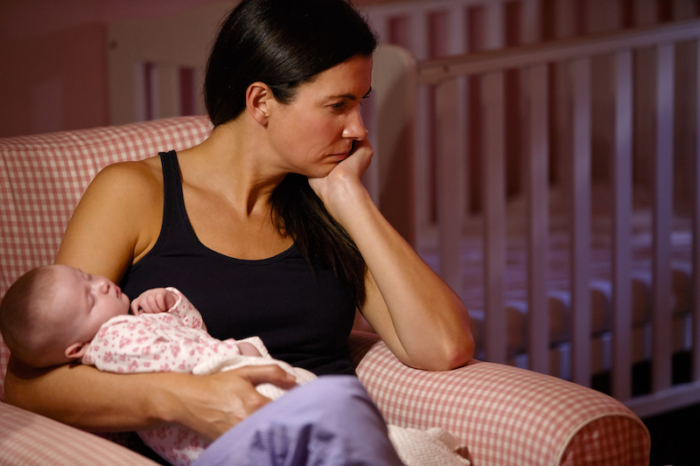May is National Mental Health Month, so we thought it would be fitting to shed some light on postpartum depression (PPD)–a mood disorder an estimated 1 in 9 women experience after childbirth. In some areas of the country, the estimate may be as high as 20% of new moms.
In recent years, discussions and research about postpartum depression have helped to reduce the stigma surrounding it. However, there is still far more that needs to be done in terms of awareness and education. From signs and symptoms to risk factors and how to seek help, here is what you need to know about postpartum depression.
What is Postpartum Depression?
Often initially mistaken as the “baby blues,” postpartum depression is a medical condition that involves lasting feelings of extreme sadness, anxiety and exhaustion following childbirth.
In the days following childbirth, a normal amount of worry, overwhelm and fatigue is to be expected considering the hormone fluctuations that occur during pregnancy and after delivery. However, when these feelings don’t subside within a week or two and worsen to the extent that they interfere with day-to-day life, postpartum depression may be the culprit.
Postpartum depression may develop at the time of birth or in the days that follow, but it most commonly starts between a week and a month following delivery. Symptoms may occur up to one year postpartum.
Though postpartum depression is often used interchangeably or as an umbrella term, there are several other postpartum disorders that women may experience including postpartum anxiety, post-traumatic stress, panic disorder, obsessive-compulsive disorder and postpartum psychosis.
What Causes Postpartum Depression?
According to the National Institute of Mental Health, postpartum depression cannot be attributed to a single cause. Instead, it is likely caused by a combination of physical and emotional factors.
Physical factors include the rapid decline of hormones (estrogen and progesterone) that occurs after a woman gives birth which causes chemical changes in the brain that may trigger mood swings.
These factors are often exacerbated by a mother’s inability to get the adequate rest need to recover from childbirth. Continued sleep deprivation can contribute to the symptoms of PPD, particularly feelings of physical pain, discomfort and exhaustion.
One thing that is for certain is that PPD is not caused by something that a mother does or does not do.
What are the Symptoms?
Postpartum depression shares many of the same symptoms as clinical depression, as well as some that are unique to women following childbirth. Some of the common symptoms may include:
- Feeling sad, hopeless, empty or overwhelmed
- Feeling shame, guilt or like a failure
- Feeling panicked or scared a lot of the time
- Feeling worried or overly anxious
- Feeling restless, moody or irritable
- Feelings of anger or rage
- Crying more often than usual or for no apparent reason
- Oversleeping
- Inability to sleep even when the baby is asleep
- Difficulty concentrating, remembering details or making decisions
- Loss of interest in activities once previously enjoyed
- Physical symptoms such as aches, pains, frequent headaches, or stomach problems
- Changes in appetite; Eating too much or too little
- Withdrawal from family and friends
- Difficulting bonding or forming an emotional attachment with the baby
- Doubting one’s ability to care for the baby
- Thoughts of harming oneself or the baby
Women may experience one or many of the symptoms above which can range from mild to severe. Untreated, PPD may last for months or longer.
When to Seek Help
If you or someone you love recently had a baby and is experiencing any of the above symptoms of postpartum depression, contact your healthcare provider right away to evaluate your treatment options. If you are worried about harming yourself or your baby, please call 911.
Because the symptoms of postpartum depression are broad, may vary among women, and often overlap with symptoms of other conditions, it is important to seek help from a licensed healthcare professional who is experienced in the diagnosis of perinatal mood and anxiety disorders such as your OB/GYN.
The board-certified physicians at Raleigh OB/GYN can help determine if the symptoms you are feeling are due to postpartum depression or something else. And if needed, recommended a mental health professional in your area as part of your treatment. To schedule an appointment, call (919) 876-8225.


